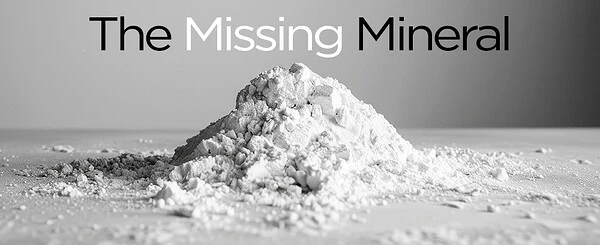The Mental and Physical Symptoms of Magnesium Deficiency
The manifestation of magnesium deficiency typically begins with mental signs, which are then succeeded by physical symptoms. By the time these symptoms become apparent, it may already be too late to prevent potential health complications.
Causes of Magnesium Deficiency
Some instances of vitamin and mineral deficiencies can be attributed to poor dietary habits. However, even individuals with a healthy diet can experience magnesium deficiency. For example, modern farming practices may deplete the nutrient content of leafy greens, despite being a seemingly nutritious food source. Additionally, factors such as job - related stress and intense physical activity can cause the body to lose minerals present in foods like pumpkin seeds and black beans. Moreover, as people reach middle age, the body's natural ability to absorb minerals decreases, while loss increases.
Significance of Magnesium in the Body
Magnesium is involved in over 300 biochemical reactions within the human body. Thus, a deficiency can have far - reaching impacts on both physical and mental health. Comparing it to a car, having a magnesium deficiency is akin to driving with low oil; the body may function for a while, but eventually, it will break down. Reports suggest that 50 - 80% of Americans may be at risk of experiencing the effects of magnesium deficiency.
Diagnosis Challenges
Although various blood and urine tests are available to assess magnesium levels, some lack accuracy, while others are invasive. Therefore, being aware of the signs and symptoms is crucial.
Magnesium Deficiency: Signs and Symptoms
Mental Signs
Anxiety and Depression: Magnesium is essential for the regulation of neurotransmitters. Low magnesium levels are associated with an increased risk of mood disorders. Symptoms may include mood swings, a sense of being overwhelmed, irritability, or difficulty in controlling emotions.
Brain Fog: Characterized by a loss of focus and mental clarity.
Insomnia or Sleep Disturbances: Magnesium plays a vital role in muscle relaxation and the regulation of the nervous system. A deficiency can lead to difficulties in falling asleep or staying asleep.
Restlessness and Hyperactivity: Manifested as poor concentration, sometimes resembling symptoms of ADHD.
Physical Signs
Low Testosterone: Magnesium enhances the bioavailability of testosterone. The symptoms of low magnesium often mirror those of low testosterone, such as poor libido, easy weight gain, and difficulty in building muscle.
Muscle Cramps and Spasms: Magnesium is crucial for proper muscle function. Low levels can cause involuntary muscle contractions or twitching, commonly experienced as cramps and spasms, particularly in the legs.
Fatigue and Weakness: Presenting as a general feeling of low energy.
Tingling or Numbness: Due to its role in nerve function, a magnesium shortage may cause tingling sensations in the hands and feet.
Abnormal Heart Rhythms: A deficiency can trigger heart palpitations and arrhythmias, as magnesium is essential for maintaining a steady heart rhythm.
High Blood Pressure: Magnesium helps in regulating blood pressure.
Tummy Problems: Manifested as loss of appetite, nausea, and constipation.
Remedying Magnesium Deficiency
Most individuals require a minimum of 400 mg of magnesium per day. When using supplements, it is advisable to opt for the chelated form to ensure proper absorption and avoid potential digestive issues associated with non - chelated magnesium. Albion Real Chelated Minerals are considered the gold standard. For instance, Elitepro Vital Minerals (available for purchase on Amazon) contains 400 mg of Albion magnesium.
Sneaky Magnesium Deficiency: How to Spot It
•
Author: Gareth Sapstead
•
fitness
sport
life

Share this article
